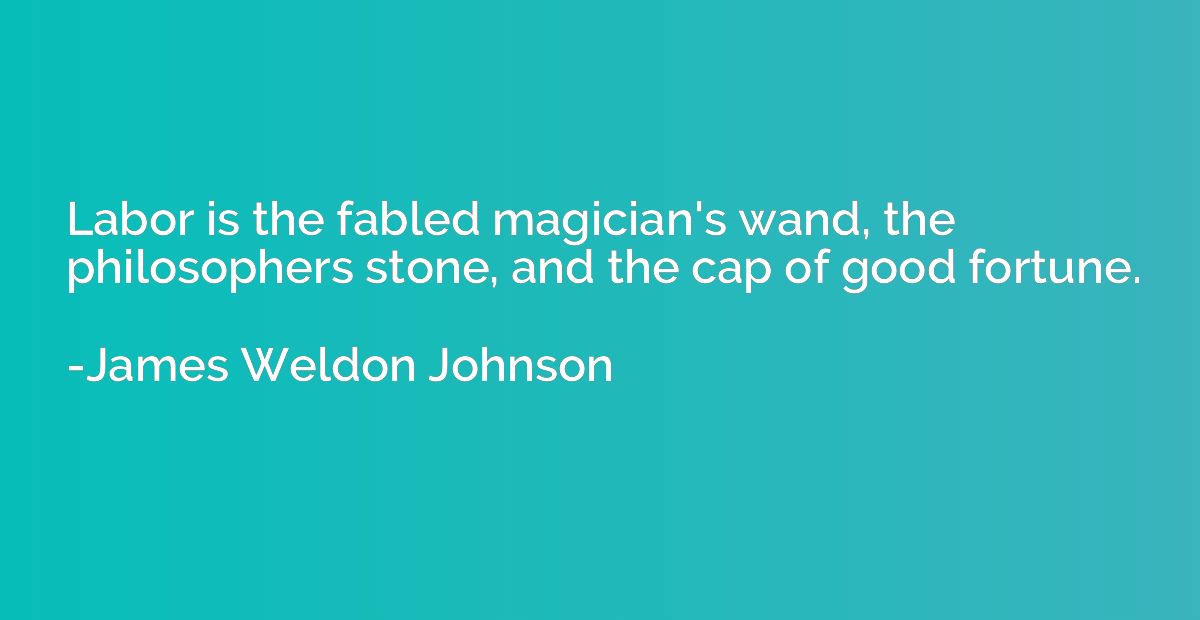Quote by James Weldon Johnson
Labor is the fabled magician's wand, the philosophers stone, and the cap of good fortune.

Summary
This quote suggests that hard work (labor) possesses incredible power and potential. It refers to labor as a magician's wand, symbolizing its ability to create and transform things. It also compares it to the philosopher's stone, a legendary substance believed to have the power to turn base metals into precious ones, symbolizing labor's ability to convert challenges and difficulties into success. Lastly, the quote likens labor to the cap of good fortune, implying that through hard work, one can bring luck and achieve prosperity. Overall, the quote emphasizes the transformative and rewarding nature of diligent and dedicated work.














